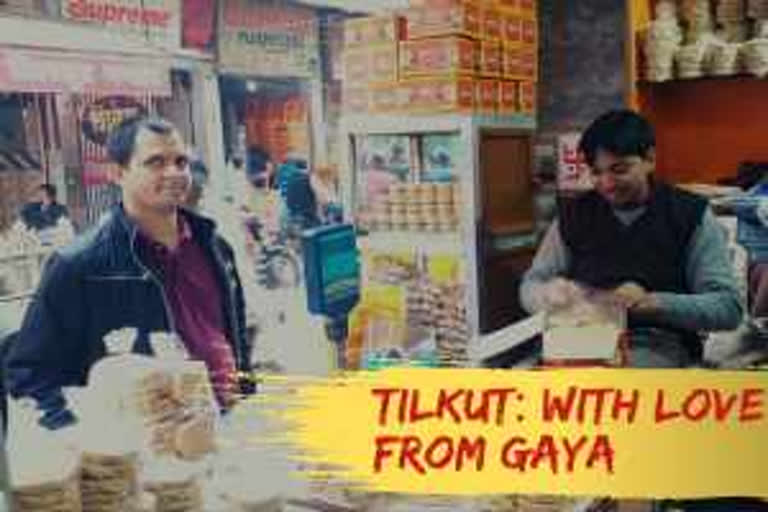Bihar: The cultural city of Gaya in North India is famous for its seasonal sweets. 'Anarsa' in rainy, 'Lai' in summer and 'Tilkut' in winter, all with different tastes and flavors, but equally savory and loves.
There are only a few days left for Makar Sankranti, a festival joyously celebrated in Gaya and the rest of Bihar. On this occasion, people consume delicacies including Chuda, Curd and tilkut. Tilkut is the main traditional dessert of Gaya.
Prior to this festival to be celebrated on January 14, Tilkut shops on the streets of Bihar have already been decorated. This sweet is famous not only in Bihar and Jharkhand but in the whole country.
In fact, it is also sent to Jharkhand, West Bengal, Delhi, Madhya Pradesh and Maharashtra for this festival.
Much before the season, the sound of sesame seeds being crushed and the aroma it produces fills the streets and remind people of the arrival of Makar Sankranti. This begins about one and a half months from January 14.
The Ramana Road in Gaya is particularly famous for its crispy tilkut in the country. The history of tilkut-making in Gaya and in Ramana Road dates back to about a hundred and fifty years.
A confectioner named Gopi Shaw first began making tilkut here. Ever since, his descendants and other people who established themselves as his competitors, have been making tilkut in the traditional way.
What is so special about tilkut from Ramana Road?
The makers at Ramana Road have expertise in the process. They make this sweet with their hands. The aroma of sesame and sugar mixed with that of a coal fire is what attracts people towards it. The dough prepared after this is carefully kneaded, finally resulting in the sweet delicacy.
No tourist visiting Gaya forgets to taste this sweet.
People associated with this business inform that four to five types of tilkut are made every season. And, the demand for tilkut made of sugar and jaggery remains particularly high.
Tilkut prices have also gone high, inflation being the biggest reason behind this.
As per religious beliefs, eating sesame and donating its seeds on Makar Sankranti is a way to receive blessings from the almighty.
Read:| Sub zero temperatures at many places in Himachal, 900 roads blocked



